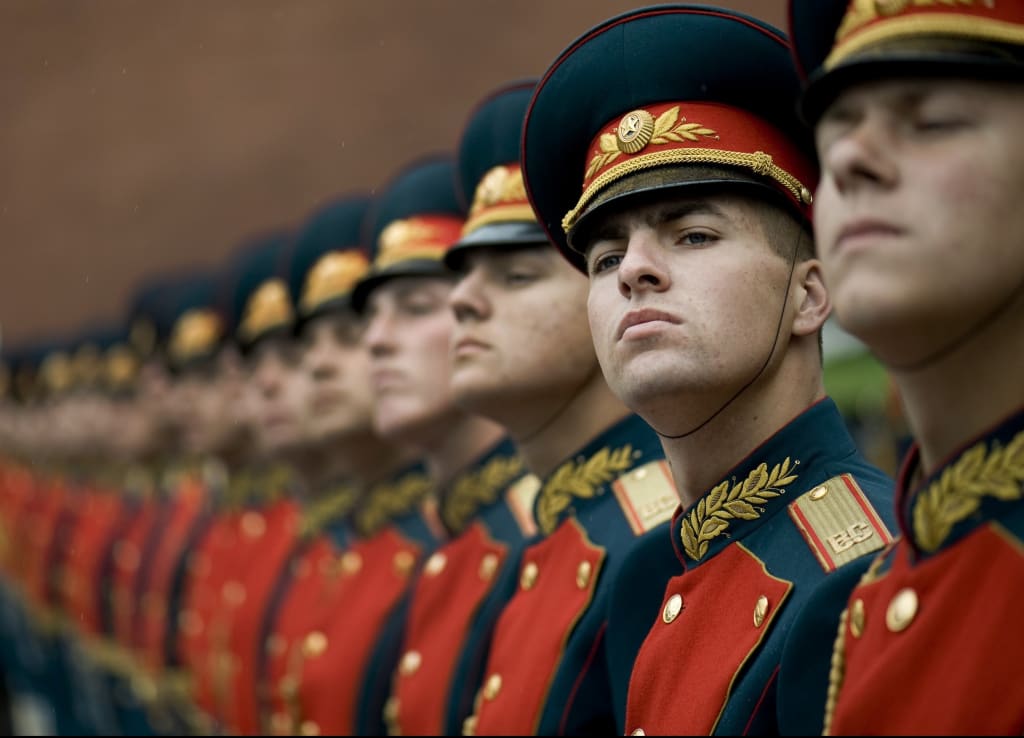How Russian Have Replaced Western Brands
The Impact of Western Brands' Withdrawal from Russia on Copycat Brands and Consumers

The withdrawal of Western brands from Russia in the aftermath of the country's invasion of Ukraine has left an indelible mark on Russian shopping streets. This seismic shift has given rise to a fascinating phenomenon: the emergence of copycat brands. As we explore the intricate details of this transformation, we aim to unravel the identity of these imitating brands and gauge how they compare to their Western counterparts. Amid these developments, one pivotal question looms large: can Russians still access the Western goods they desire, and how can these Western brands respond to the evolving Russian consumer landscape?
Over a year since the mass exodus of Western corporations from Russia, it is crucial to evaluate whether the Kremlin has skillfully navigated the challenges posed by this corporate retreat or if the impact will prove to be a painful and enduring one.
The Western Brands' Exodus
The withdrawal of major U.S. and European brands from the Russian market sent shockwaves through the nation's retail landscape. Household names like McDonald's, KFC, Pizza Hut, and Starbucks made the difficult decision to shutter their Russian outlets and cease the sale of their products, leaving behind a gaping void in a country boasting a population of 140 million.
The Vacuum Left Behind
Following the dramatic exit of these Western titans, two distinct narratives emerged:
1. Russian Businesses and Shoppers: In a display of remarkable resilience and resourcefulness, Russian entrepreneurs and consumers found innovative means to procure Western products that were no longer available through these brands' traditional channels.
2. Replacement Businesses: Simultaneously, a new breed of businesses sprouted, promising an experience that mirrored that of their Western predecessors. These businesses sought to fill the void left by the departing giants.
McDonald's: A Symbolic Departure
The departure of McDonald's, an emblem of American capitalism's triumph over Soviet communism, was a poignant moment in Russia's history. The closure of its Russian restaurants, three decades after its grand entrance during the twilight of the Soviet Union, served as a stark reminder of the enduring ideological chasm separating East and West.
The 850 outlets that once bore the Golden Arches were sold to Alexander Gevor, who promptly revamped them with a new color scheme and a fresh moniker: "Guzna Itochka," meaning "Tasty and That's It." Russian vloggers wasted no time in sharing their experiences at this newcomer on the High Street, meticulously comparing it to its globally renowned predecessor.
While many Russians attest to the similarity between the replacement restaurants and the original McDonald's experience, several signature menu items are conspicuously absent. The absence of the iconic Big Mac and other trademark items like the McFlurry, initially due to sanctions-driven shortages, posed a challenge for the fast-food chain. Moreover, the new incarnation, "Tasty and That's It," found itself compelled to raise prices, primarily attributing this move to the inflation triggered by sanctions imposed on Russia.
The Domino Effect: KFC, Pizza Hut, and Pizza
KFC and Pizza Hut, both prominent American fast-food chains, also announced their departure from the Russian market and sold their assets. Interestingly, even Pizza Hut, which once featured former Russian President Mikhail Gorbachev in its advertising campaigns, opted to exit the Russian scene.
The American corporate titan Starbucks, despite its high profile, managed to fade into the background seamlessly, with Stars Coffee taking its place. The "star" in Stars Coffee was none other than Kremlin-friendly rapper Timothy, who emerged as one of the owners of the new chain.
However, it's essential to acknowledge that it's not only American giants that have bid adieu to Russia; Swedish retail giant Ikea relinquished its blue buildings. In its stead emerged Belarusian brand Sweat House, which also specializes in uncomplicated furniture. The transition from Ikea to Sweat House was not as straightforward as it might seem. Ikea, while beloved by many, was often seen as out of reach for the average Russian, given its representation primarily in large cities with higher incomes.
Sweat House, which shares a striking resemblance to Ikea in terms of its products, branding, and even product names with Nordic associations, has managed to capture the essence of its Swedish predecessor. This underscores a broader trend of foreign companies from friendly or neutral nations stepping in to fill the void left by Western brands.
Fashion Awards and Turkish Brands
The departure of Western fashion brands, symbolized by the likes of Zara, paved the way for Turkish brands to flourish in Russia. Turkey, it seems, found fertile ground for its businesses to thrive. The absence of Western fashion giants in Russia presented Turkish brands with an opportunity to gain a strong foothold.
Russian Perspective on the Changing Brandscape
How do Russians perceive these alterations in their retail landscape? Are they content with Krispy Kreme becoming Crunchy Dream, or do they pine for U.S. brand Duncan when ordering Donato? Are Russians perturbed that the LEGO store has been reimagined as World of Cubes?
Opinions among Russians are divided. Some embrace the changes, finding humor in the replacements. They jokingly contend that certain elements cannot be replaced, such as Swedish furniture in place of Belarusian furniture. However, a significant segment is nostalgic for Western brands. According to surveys, Ikea, McDonald's, and Zara rank as the brands Russians miss the most.
These varying sentiments offer a glimpse into how Russian consumers are adapting to the evolving retail landscape.
The Challenge of Copycat Brands
The emergence of copycat brands attempting to replicate Western products and experiences presents a unique challenge. These brands strive to capture the essence of their Western counterparts while navigating the legal and ethical intricacies of imitation.
How Did Copycat Brands Emerge?
The departure of Western brands created a void, swiftly filled by copycat brands aiming to replicate the Western experience. However, legal concerns surrounding trademark infringement and imitation remain significant hurdles for Western companies.
Russian Laws and Enforcement
Russian legislation allowed the importation of Western goods through parallel imports, enabling products to enter the country without the trademark holder's permission. This practice opened channels for copycat brands to flourish, often imitating well-established trademarks.
Enforcing intellectual property rights in Russia became increasingly complex due to the absence of Western brands in the market. While some legal action was possible, collaborating with local authorities to curtail imitation became challenging.
The Future of Western Brands in Russia
As Western brands assess their options, the long-term implications of their exodus remain uncertain. These brands are carefully considering their strategies and the possibility of reentering the Russian market once geopolitical stability is restored.
Debates surrounding the responsibility for enforcing trade policies have emerged. Some argue that governments should play a more active role in controlling the flow of Western products into Russia and taking action against imitators.
Potential Consequences
Allowing illegitimate infrastructures of copycat brands to persist may lead to long-term consequences, including counterfeit goods and substandard products entering the market. This, in turn, could compromise consumer safety and brand integrity.
The future of Western brands in Russia remains uncertain, influenced by various factors, including the resolution of geopolitical conflicts, evolving consumer preferences, and government policies.
Consumer sentiment in Russia varies, with some embracing the replacement brands and others expressing nostalgia for Western originals. The majority seems to have adapted to the changes, reflecting
About the Creator
Francis Osei
“Tom bele has been working with writing challenged clients for over four years. He provides ghost writing, coaching and ghost editing services.
Reader insights
Nice work
Very well written. Keep up the good work!
Top insights
Compelling and original writing
Creative use of language & vocab
Easy to read and follow
Well-structured & engaging content
Excellent storytelling
Original narrative & well developed characters
Expert insights and opinions
Arguments were carefully researched and presented
Eye opening
Niche topic & fresh perspectives






Comments (2)
good write
Excellent article, I didn't realize the extent of how American corps are leaving Russia due to the invasion of Ukraine. Does Corporate America have a conscious or just fed up with Puttin?